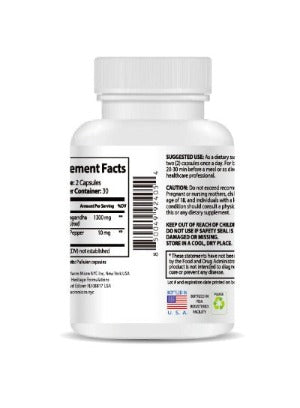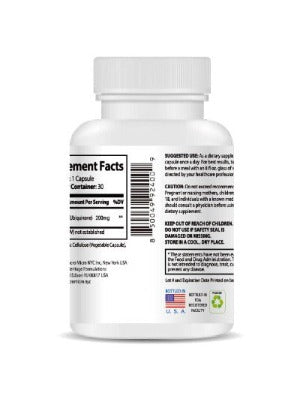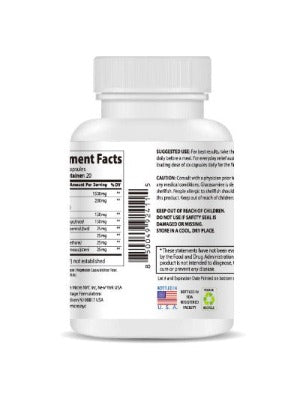Do your eyes often feel gritty, tired, and uncomfortably dry?. Perhaps you dismiss it as a side effect of a long day staring at a computer screen or too much time on your phone. But what if that persistent dryness, sometimes accompanied by inexplicable tearing, is more than just simple eye strain?. It could be Dry Eye Syndrome, a condition that’s becoming increasingly common in our modern, screen-filled world.
Many factors contribute to this condition, and it’s not just an issue for the elderly. Excessive use of digital devices, wearing contact lenses for long hours, constant exposure to air conditioning, and even hormonal changes can disrupt our eyes' delicate balance, leaving them feeling uncomfortable and irritated.
The good news is that you don't have to simply endure the discomfort. Traditional Chinese Medicine (TCM) offers a holistic and deeply insightful approach to understanding and treating dry eyes. In this article, we’ll explore the true nature of Dry Eye Syndrome, its surprising symptoms, and its root causes from a TCM perspective. We will be referencing the wisdom of Dr. Jesse Huang, a distinguished US-based TCM practitioner and a third-generation descendant of Chinese imperial court physicians, to guide us through practical, natural solutions—from nourishing herbal teas and dietary adjustments to simple acupressure techniques that can help you restore moisture and comfort to your eyes.
More Than Just Dry: The Surprising Symptoms of Dry Eye Syndrome
The first step to finding relief is correctly identifying the problem. While the name "Dry Eye Syndrome" seems straightforward, the condition encompasses a range of symptoms that go beyond simple dryness. According to Dr. Huang, the most common signs include:
-
A persistent feeling of dryness and grittiness.
A foreign body sensation, as if sand or an eyelash is in your eye.
A burning or stinging sensation.
Itchiness, pain, and redness.
General eye fatigue and blurry vision.
Perhaps the most confusing symptom is what’s known as "reflex tearing". It seems counterintuitive—if your eyes are dry, why would they be watering constantly? Dr. Huang explains that this is a hallmark sign of Dry Eye Syndrome. It happens because the quality of your natural tears is poor and they evaporate too quickly. Your cornea, which is incredibly sensitive, becomes irritated by the lack of a stable, protective tear film. In response, your nervous system sends a distress signal to produce more tears, but these are often watery, poor-quality "emergency" tears that lack the essential nutrients to properly lubricate the eye's surface.
Dr. Huang offers a brilliant analogy: imagine a field with dry, cracked soil. If a sudden, heavy downpour occurs, the water simply runs off the surface without deeply penetrating and nourishing the ground. Similarly, these reflex tears flood the eye but fail to provide lasting moisture and relief.
In TCM, this paradoxical condition is often attributed to "Liver Yin Deficiency with deficient wind stirring internally". This means the fundamental nourishing fluids (Yin) of the body are depleted, leading to an internal imbalance that manifests as irritation and these ineffective, "deficient tears".
Are You at Risk? The Common Culprits Behind Dry Eyes
Understanding what causes or exacerbates Dry Eye Syndrome is crucial for prevention and treatment. Here are some of the most significant factors, viewed through both a modern and a TCM lens.
1. Digital Screens and "Computer Vision Syndrome" In today's world, it's nearly impossible to avoid screens. This constant digital engagement is a primary cause of dry eyes. Dr. Huang points out that when we stare intently at a screen, our blink rate can decrease significantly. Blinking is essential for spreading fresh tears across the eye's surface. Fewer blinks mean less tear secretion and an unstable tear film, leading directly to dryness and irritation.
-
The TCM Perspective: There is an ancient TCM principle that says, "prolonged looking injures the blood" (久視傷血). Blood, in TCM, is a vital substance that nourishes the entire body, including the eyes. When we overuse our eyes for extended periods, we deplete this nourishing blood, leaving the eyes underfed and prone to dryness.
2. Wearing Contact Lenses Contact lenses can be a convenient alternative to glasses, but they come with a high risk of causing dryness. Research shows that up to 80% of contact lens wearers experience symptoms of dry eyes. A contact lens sits directly on the cornea, which can disrupt the natural distribution of the tear film and interfere with the eye's microcirculation. Furthermore, the lens material itself can increase the rate of tear evaporation.
-
The TCM Perspective: Dr. Huang explains this as a "foreign object pressing on the eye for a long time" (外物久克於目), which obstructs the healthy flow of essence and fluids that are meant to nourish the eye.
3. The Natural Process of Aging As we get older, the function of all our glands, including the tear glands, naturally declines. This means we produce fewer tears, making Dry Eye Syndrome much more common after the age of 40.
-
The TCM Perspective: This aligns perfectly with classical TCM theory. Dr. Huang cites the ancient text, the
Huangdi Neijing (The Yellow Emperor's Inner Canon), which states that around age 40, the body's Yin energy begins a natural decline, and by age 50, hearing and sight may no longer be as sharp. This is due to the gradual depletion of the essence and blood of the Liver and Kidney, the two organ systems considered foundational to eye health in TCM.
4. Environmental Factors: AC and Heating The environments we live and work in play a significant role. Air conditioning and central heating create very dry air, which dramatically increases the rate at which tears evaporate from our eyes.
-
The TCM Perspective: This is seen as an external pathogenic factor known as "Dryness Evil," which invades the body and injures its precious Yin fluids.
5. Hormonal Fluctuations Women are more susceptible to dry eyes, largely due to hormonal changes. Fluctuations in estrogen, particularly during menopause, pregnancy, or while on birth control, can directly impact tear production.
-
The TCM Perspective: In TCM, estrogen levels are closely related to the health of the Liver and Kidney essence and blood. Low estrogen often indicates a deficiency in these vital substances. There is a core principle in TCM that "women are rooted in yin and blood" (女子以陰血為本), meaning their physiological health is deeply tied to these nourishing elements. When yin and blood are deficient, symptoms like dry eyes are very likely to occur.
The TCM Path to Rehydrating Your Eyes from Within
Unlike treatments that only offer temporary relief, TCM aims to correct the body's internal imbalances to resolve dry eyes at the root. The focus is on nourishing the Liver and Kidney systems and replenishing the body's essential Yin, blood, and fluids. Here are some practical methods recommended by Dr. Huang.
1. Nourishing Herbal Teas Simple, gentle herbal teas can be a wonderfully effective way to rehydrate and nourish your eyes from the inside out. Dr. Huang suggests the following:
-
Goji Berry and Chrysanthemum Tea (枸杞菊花茶): This is a classic and widely known combination for eye health. Goji berries are famous in TCM for nourishing the Liver and Kidney, while chrysanthemum helps to clear heat and soothe eye irritation.
Cassia Seed and Dendrobium Tea (決明子石斛茶): Cassia seeds are traditionally used to brighten the eyes, while Dendrobium (Shí Hú) is a prized herb for its ability to generate fluids and nourish Yin.
Mulberry and Goji Berry Tea (桑椹枸杞茶): Mulberry is excellent for nourishing blood and Yin, making this a delicious and powerfully restorative tea.
Glehnia and Ophiopogon Tea (沙參麥冬): Both of these herbs are masters at moistening dryness and generating fluids, making them ideal for combating the effects of a dry environment.
2. Acupressure for Targeted Relief Applying gentle pressure to specific acupoints around the eyes can stimulate circulation, relieve fatigue, and encourage natural tear production. Dr. Huang recommends these four key points:
-
Jingming (睛明 - UB1): Located in the small depression at the inner corner of your eye, next to your nose.
Zanzhu (攢竹 - UB2): Found in the depression at the inner end of your eyebrow.
Taiyang (太陽 - M-HN9): Located in the tender depression at your temples, about one finger's width from the outer corner of your eye.
Sibai (四白 - ST2): Found about 2cm directly below your pupil, in a small indentation on your cheekbone.
Gently massage these points in a circular motion for 10-20 seconds each, a few times a day, especially during breaks from screen time.
3. Dietary Therapy What you eat has a direct impact on your eye health. In addition to modern advice to include sources of Omega-3 fatty acids and Vitamin A, TCM emphasizes incorporating yin-nourishing foods. Dr. Huang suggests adding foods like black sesame seeds, lily bulbs, goji berries, and dendrobium to your diet to help build the essential fluids your eyes need.
Your Questions Answered: Q&A on Eye Discomfort
Here are answers to some common questions about managing dry and uncomfortable eyes.
Q1: How can I tell the difference between simple eye fatigue and actual Dry Eye Syndrome? A: This is a crucial distinction. According to Dr. Huang, the main difference is whether the symptoms resolve with rest. If you have simple eye fatigue, taking a break from screens, closing your eyes, or getting a good night's sleep will usually bring significant relief. With Dry Eye Syndrome, however, the gritty, dry, and foreign body sensations are persistent and don't go away easily, even after resting your eyes.
Q2: Are artificial tears a good long-term solution? I'm worried about becoming dependent on them.
A: Artificial tears act as a substitute when your own tear production is insufficient, and they can provide temporary relief. For mild cases where you only need them 3-4 times a day, they can be effective. However, Dr. Huang cautions that many over-the-counter eye drops contain preservatives. If you have a more severe case and need to use them frequently (6-8 times a day or more), these preservatives can accumulate and potentially damage the delicate surface of your cornea over time. For frequent use, it is essential to choose preservative-free formulas. The goal of TCM, in contrast, is to restore your body's own ability to produce healthy tears, thereby reducing or eliminating the need for these substitutes.
Q3: I have dry eyes, but my job requires me to be on a computer all day. What practical steps can I take? A: This is a common challenge. Dr. Huang recommends implementing the
20-20-20 rule: for every 20 minutes of screen time, take a 20-second break to look at something 20 feet away. This helps relax your eye muscles. He also notes that while blue-light-blocking glasses can help reduce some aspects of digital eye strain and fatigue, they don't directly improve your tear quality or treat the root cause of dryness. Incorporating the acupressure massage techniques and sipping on one of the recommended herbal teas during your breaks can provide significant relief throughout the workday.
Q4: Is Dry Eye Syndrome just an adult problem, or can children get it too?
A: Absolutely, children can get it. Dr. Huang states that due to the widespread use of electronic devices for both education and entertainment, combined with academic pressure, children are increasingly being diagnosed with dry eyes. He even shared a personal story of developing symptoms himself during middle school from studying and reading too much, which manifested as severe dryness and reflex tearing.
Q5: If I try TCM treatments, how long will it take to see results for my dry eyes? A: The timeline for improvement depends on the severity of your condition. For mild to moderate cases of Dry Eye Syndrome, patients can often expect to feel noticeable relief within 2 to 4 weeks of consistent treatment with methods like acupuncture and herbs. However, for more severe, chronic cases, achieving a satisfactory and stable result may take several months. Dr. Huang emphasizes that success also depends on your commitment to complementary lifestyle adjustments, such as getting enough sleep, managing screen time, and avoiding aggravating foods like those that are overly spicy.









